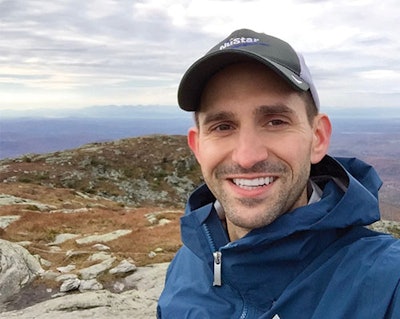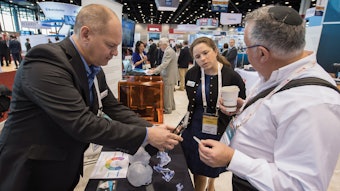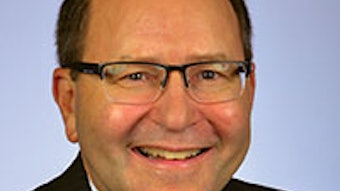Resident Profile: Nathan C. Grohmann, MD
The journey of every otolaryngologist–head and neck surgeon is unique, often grounded in inspired dedication for the life-altering effects the specialty can have on patients and their lives.
Nathan C. Grohmann, MD, Division of Otolaryngology, University of Vermont Medical Center

“This specialty is about being able to work on the areas of the body that are so important to how we are perceived as people, and our ability and responsibility to affect lives in profound ways through medical therapy and surgery,” said Dr. Grohmann.
Hailing from the small town of Weimar, TX, Dr. Grohmann was one of 64 students in his high school graduating class. He attended Baylor University for undergraduate school and obtained his medical degree from the Baylor College of Medicine in 2013.
“Surgery as a career entered my mind in undergraduate, and the interest never faded throughout medical school. What I found was that the patients who fascinated me the most and the mentors with whom I fit in best were all in the specialty of otolaryngology,” he said.
In seeking a residency in otolaryngology, Dr. Grohmann applied all around the United States and ended up matching at the University of Vermont in Burlington, VT.
“I have loved my experience in Vermont, which is a complete change from Texas in so many ways,” he said. “Within residency itself, I have had fantastic mentors in all the subspecialties of otolaryngology. But in particular, I have loved taking care of patients with head and neck cancer.”
Next on Dr. Grohmann’s journey is a fellowship in head and neck cancer, to begin in July 2018 at the University of Pittsburgh. Beyond that, he envisions a career in academic medicine and research and taking care of more advanced cases.
“I have this crazy idea that I want to do a second fellowship in skull-base surgery and am now applying for a second fellowship for the 2019-2020 academic year,” he said. “I want to be one of the people that helps advance our field for the field itself, but more importantly, for patients.”
Entrance into the world of practicing physician and in particular practicing otolaryngologist–head and neck surgeon is entry into the current culture of healthcare reform. (See “Shifting the healthcare debate” and “The path to healthcare reform”.) Dr. Grohman provided his resident perspective on some of the challenges and opportunities physicians face.
“We are at the cusp of some truly phenomenal technological breakthroughs for all of medicine and not just otolaryngology,” he said. “Yet, in many ways, we find ourselves cursing at our computer screens because the interfaces are clunky, slow, ineffective, and time-consuming. The goal would be improved efficiency to really sit down with our patients and provide more time for them instead of looking at our computer screens.”
Another concern of Dr. Grohmann’s is use of information and patient privacy.
“The end result of these advancements should not be used in ways that would increase economic burdens for patients or make already vulnerable people more vulnerable,” he said. “Having the Academy continue to play a part in ongoing healthcare policy discussions is essential to making sure that the collected information is used exclusively for the good of our patients.”
Physician wellness is another important topic that Dr. Grohmann identifies as a challenge for the medical profession.
“I think it is important that the Academy is addressing this issue head-on,” he said. “We are working with not only some of the most talented people in medicine, but some of the most intelligent people in the world. To have that talent wasted or squandered due to physician burn-out is a real tragedy, and it is crucial that our Academy continues to maintain leadership in this area and focus on our wellness.”
Dr. Grohmann notes the value of his membership in the Academy as an essential resource for success. From access to cutting-edge research and study materials to attending the Annual Meeting for innovative lectures by world-renowned leaders of the specialty, the Academy offers him a multitude of benefits and opportunity as a resident member.
“Getting involved in the specialty can mean not only being involved in one of the Academy committees, but also being involved in research and resident education,” he said. “That is how we, as residents, can engage in our specialty and the Academy.”
Also interwoven in the tapestry of Dr. Grohmann’s journey, as a person and as a physician, is his commitment to community service and global humanitarian efforts.
“Service has long played a defining role in my life—from Boy Scouts as a teenager, to medical service in Honduras as an undergraduate student, and to leadership positions in medical school. I foresee that my commitment to service will continue to play out in the international arena throughout my medical career.”













